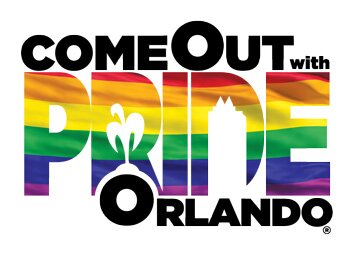Part of a series of guest blogs reflecting on the first anniversary of the formal repeal of Don’t Ask, Don’t Tell.
By Mark Mazzone
The anniversary of Don’t Ask Don’t Tell repeal is a reason to celebrate for most people. For my brothers and sisters on Active Duty, the repeal has been a godsend. I used to be a part of that crowd, for five years, and after a near-death experience during my first deployment to Iraq in 2003, I chose to close that chapter in my life, not engaging in any remote acknowledgement of my sexuality until 2005, when I was outside the clutches of Uncle Sam. Yet, God and Country called me once more, but on a less-permanent basis when I joined the North Carolina National Guard in 2007. Don’t Ask Don’t Tell became the shadow I lived in once more, a larger shadow when you’re living and working in the conservative South.
When the repeal happened September 20th, 2011, I was elated, anxious, apprehensive, and a whole other host of emotions. What I thought would make a transition easier into being an out service member only caused fear. Considering my unit on Active Duty, coming out may not have been a big issue, especially knowing that several people I was stationed with are completely understanding and accepting of the person I finally revealed myself to be.
“We’re brothers-in-arms and that’s all that matters.” One of my medics told me that, a man on a very short list of people I would give my life for if it was required.
The stereotype isn’t always accurate, no matter if you’re dealing with income level, religious background, race, gender, etc. Throughout my time with the very first Stryker Brigade on Fort Lewis, Washington, to the 30th HBCT of the NC National Guard, one thing is for sure, the men and women in the unit are dedicated and uproot from their regular lives to answer the call of their Commander-in-Chief, no matter the time of year. The downside is those same people are entrenched in their culture and way of life. Lack of exposure to other lifestyles, races, or even genders maintains their cultural status quo. Not to say everyone’s will should be bent, but prejudice and hate, as a result of lack of understanding and ignorance, need to be pushed outside of the military complex. It starts at the unit level and with each individual.
Despite having a small percentage of racial diversity in my unit, it doesn’t help to break down the barriers to any sort of racial prejudice people may have. Also, there are no openly gay soldiers in my unit. I’m not out, nor do I choose to be. The repeal of DADT didn’t give me a “get out of gay free card” so to speak. Minds are made up, and so is mine. Being gay in a very conservative region, not to mention a combat arms unit loaded with infantrymen isn’t an easy thing to do. Luckily, not every gay military male perpetuates the stereotype of the flamboyant and feminine man who feels the need to let everyone know he is gay.
I’ve heard the way some of my junior soldiers speak regarding gays in the military. I’ve heard the term “faggot” used (not directed at me). A soldier I respect even went so far as to give the typical “I just don’t want them to shower with me,” implying that all gay men will sleep with any man they meet. It has been pretty brutal hearing my soldiers speak so condescendingly about gays. It’s one thing to joke around, and while I don’t condone it, I’ve been guilty of joking around with my soldiers; but there is a point when enough is enough. Usually that point is reached when the command gets involved, typically when we are in field ops at Fort Bragg and all in the same tent.
A few of my comrades are aware of my sexual orientation, but I am still very much in the closet. I envy the people who bring their partner to the dining out, or a formal event, only to be recognized by the senior enlisted and officers. I wanted to be there with my partner Derrick, and be just as proud as my heterosexual counterparts with their wives and girlfriends. However, the repeal didn’t mean I WOULD bring him. We are also an interracial couple. I’ve chosen not to be public with my relationship in my unit, even though I am proud and blessed to have such an amazing man in my life. When DADT was repealed, all kinds of people assumed everyone would come out to their units, bringing their partners to events and functions, as if all barriers were gone.
A false assumption by most standards.
The repeal didn’t mean gay pride ribbons, rainbows, glitter, and the onset of insanity. It was simply a milestone in an institution that finally stopped persecuting people who chose to serve their country above their own happiness, being fired for it, and living lies and enduring years of hardship. We’ve come a long way, but despite all the steps forward, several of us are taking steps back. After the repeal, the closet is where I’ve been, and as much as I would love for people to know the real me, my service overshadows my need for acceptance of my sexuality by others. I wish it was the other way around.
Mazzone is currently a Sergeant with the North Carolina Army National Guard.





















